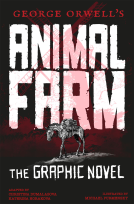
Insanity By Increments
by Alaric P Cabiling
This title was previously available on NetGalley and is now archived.
Send NetGalley books directly to your Kindle or Kindle app
1
To read on a Kindle or Kindle app, please add kindle@netgalley.com as an approved email address to receive files in your Amazon account. Click here for step-by-step instructions.
2
Also find your Kindle email address within your Amazon account, and enter it here.
Pub Date Mar 04 2015 | Archive Date Aug 21 2015
Description
Just released on amazon.com, Nook Books, and iBookstore, Alaric Cabiling’s Insanity By Increments is literary short fiction at its finest. Alaric Cabiling dazzles the reader with a contemporary rendition of the Gothic fiction template. Fans of James Salter and William Trevor will love Insanity By Increments. Offering beautiful effusive language and unforgettable characters, the stories in Insanity By Increments will shock and delight readers for years to come.
A Note From the Publisher
Author is available for interviews, blog tours, autographed book giveaways, contests, and book club discussions.
Advance Praise
D. Donovan, Senior eBook Reviewer, MBR:
Modern literary short fiction is not unusual: many attempt it; relatively few do it well - especially in the style of the gothic horror approach so aptly explored by Poe, Hawthorne, and other greats. That's why it's such a pleasure to read Insanity by Increments: it takes some of the methods and madness of these greats and moves a step further, presenting nine short stories of contemplation and quiet horror.
Take 'Once Found, Once More Forsaken', for example (the first story in the collection). The protagonist has slept through a storm and is expecting the arrival of his brother, a wealthy wanderer, that morning; but his chance encounter with an old schoolgirl introduces a sense of danger ("The air had an unusual odor, one that seemed to have followed the storm, with the rising waters replenishing the stagnant pools of the bog."), and what transpires next is anything but a congenial family visit.
Surreal moments, gently simmering mysteries, a woodland replete with death and growing horror - all this is gently woven into a story that opens with a receding storm and evolves into exquisitely challenging horror.
'Omens of Winter' is another heart-pull: it opens with a family dilemma and, once more, time is taken to paint scenes properly, right down to the creak of a door as a last generation stands strong against what is to come: "The ancient door still made a ratcheting sound at a point in its arc, and I was careful to not let it alarm them, sliding from behind it as I escaped into the hallway and up the stairs towards my room." When the family structure changes, the kids face many new choices - and dangers.
All are well-done, replete with psychological tension throughout. If it's nonstop staccato action that is desired, look elsewhere. If it's the slow simmer of a buildup that injects readers into the sights, sounds, and circumstances of all kinds of horror and insanity, choose Insanity by Increments: it's a deliciously complex treasure trove especially recommended for fans of literary Gothic fiction who want modern scenarios and representations in the context of a genre that receives (regrettably) little attention these days.
Reviewed by Jack Magnus for Readers' Favorite:
Insanity By Increments: Stories is a collection of literary short stories
written by Alaric Cabiling. The nine stories that comprise this collection seem
to share a theme of dislocation and/or alienation; many of their heroes are
cold, disaffected or out of step with the world. The first story, Once Found,
Once More Forsaken, is narrated by a man who admires his talented, eccentric
and adventurous older brother and whose visit he has anticipated and prepared
for with care and the deli meats he knows his brother loves. The brother comes
and swirls through town in his Lamborghini; his old girlfriend throwing herself
at him barely out of sight of her husband and his propensity to violence. "I
never loved her," he tells his younger brother and is gone in the morning,
almost as if he had never been there at all.
Inside Alaric Cabiling's literary short story collection, Insanity By
Increments lurk compelling and darkly edgy gems that grab the reader's
attention, toy with him for a few brief moments, and then toss him aside
casually, without an afterthought while each succeeding story dares the
undaunted audience to try again. The mood in these stories is stormy and
oppressive and still somehow so seductive that I found myself unable to put
Insanity By Increments Down. And after finishing the concluding, and title,
story, I thought to read the first story once again and so retrace the cycle,
but thought it best to wait a bit and let the dark magic settle down to safer
levels. Cabiling is a master at creating moods, especially those which border
on the macabre, the obsessive and the melancholy. Each word seems selected
carefully, examined and put in place just so, and the flawed and flailing
characters he peoples his work with become almost familiar to the reader as he
himself is...and that's a pretty scary thing, and the handiwork of a powerful
and creative writer. Insanity By Increments: Stories is most highly
recommended.
Reviewed by John Nicolas of Bookreview.com:
"Insanity by Increments, Stories," a collection of short stories by Alaric Cabiling, takes its title from the last story in the book, but it might describe the reader if you decide to pull an all-nighter and read this volume in one sitting.
Cabiling's stories are grounded in one of the long traditions of American short stories, from Melville's "Bartleby" to the Montana of Richard Ford: lonely men at odds with bleak landscapes, traumatized by a childhood that was often violent, and always lacking true emotional warmth. These narrators are frequently writers, artists, young men who are capable of creating their own strange stage settings so that even within this tradition, they come off as memorable.
Some of Cabiling's protagonists live prosaic lives, some are definitely out on the fringe. The photographer of dead beauty queens in "Frailty" is as proud of his aesthetic skill and success as is the novelist in "Dulcinea," and Cabiling eases us through these nightmarish sequences by tossing in some Latin American magic realism. The tone throughout many of the stories is that of a surrealist move, where one absurd scene after the other continues to mount toward some dark inevitability. The endless days slipping away in a "wash of gray" against a pale sky are contrasted by closing time at motel bars, dark, gaudy rooms inhabited by people who do not really belong there—people on their way to and from somewhere else. You cannot help but be impressed by the author's ability to establish scene and pace within the first few paragraphs of his stories, and the simple dialogue is effective despite a careless parade of awkward adolescent sentences.
Unfortunately "Insanity by Increments" is only available as an ebook and that is an awkward venue for stories in which present, past and future often intermingle. A handsomely spaced format would have been a great assistance here. Bookreview.com hopes the author will take advantage of a good editor in the future. His talent certainly justifies the expense.
reviewed by Mihir Shah of US Review of Books:
"It's like there's this stranger deep inside of you, sharing space in your mind, whispering, sabotaging everything."
Insanity by Increments is a collection of nine short stories, each filled with progressively ascending tension; each walks the fine line between reason and the dark impulsive tendencies of the human mind.
While the novel takes the title of the final story, the stories prior are the build up. In the opening story, "Once Found, Once More Forsaken," the image of the dead swans in the forest thrusts the reader into a somber mood and ensures that there will be no fitting, happy end. "The Illusion of Progress," paints a grim, albeit real portrait of life: marriages fail, accidents happen, and even when one might think they've hit rock bottom, there's still further down to go.
Cabiling does an incredible job of using the setting to depict the ominous mood of his narrative. Examples include phrases like, "furniture would sit somberly like tombstones."
"Winter’s Eden," is the story that stands out. The phrase Eden plants the forbidden fruit idea into the audience's mind. Whether it's the tension between Amy and her Uncle Henry, or Henry's reluctant fulfillment of his obligations to his paraplegic wife, Leticia, this story pushes the envelope.
To have a collection that repeatedly trumps predictable behavior is refreshingly original. "Frailty" toys with the macabre and will certainly get a gasp from its readers as the story spirals into a darkening world.
Interestingly, sexual tension is almost ubiquitous. However, the story with the least is possibly the most depressing: "Omens of Winter." Set in Scuttlefield, Cabiling shines light on a painstaking life of toiling the farm and resigning one's self to a lifetime of despair.
Overall, the simple structure makes for an easy read. The content, at times, resembles a fusion of Poe and Gabriel Garcia Marquez. Other times, it shatters the barriers of reason and lets readers dive into the horrific reality that is depression.
Available Editions
| EDITION | Ebook |
| ISBN | 9781312920507 |
| PRICE | $2.99 (USD) |
Average rating from 6 members
Featured Reviews
 Marjorie C, Reviewer
Marjorie C, Reviewer
I don’t often read short stories as I prefer more character and plot development than short stories can offer. But sometimes a short story collection will catch my eye, like this one did. Who could resist that title?
There are a total of nine short stories in this collection. The whole book was only about 120 pages on my e-reader so each of the stories was quite short. However, this author uses every word to wonderful effect, with no fillers whatsoever. To me, these were more mood pieces rather than stories with a beginning and ending. Things aren’t always spelled out in black or white but rather are hinted at. The author expertly sets up a dark atmosphere for each story, with subtle psychological suspense running through them. I see that the author’s first book “Darkest Day” is a book of poetry and I can certainly see the heart of a poet in this short story collection.
The next time I see a short story book, I won’t be so quick to pass it by as I very much enjoyed reading these short bursts of literary prose. I read the book almost straight through but did have to stop after each story to contemplate it a bit before moving onto the next one. Highly recommended.
 Helen M, Bookseller
Helen M, Bookseller
An interesting take on the Gothic form, with some eerie tales, some tales of life on the downside of things and some tales of tragedy, which leave you feeling either down or disturbed, but none of which fail to stir emotions in the reader.
My favourites were "The Illusion of Progress", about a single parent father who lives for his young son, "Winter's Eden" about two students going to stay with their uncle and disabled aunt and "Hope Leaves" about a man whose wife is in a coma following an accident, all of which are imbued with heart break and tragedy.
On the more macabre side, the strange "Frailty" about a grave-robbing photographer working on a very strange assignment for a necrophiliac was decidedly attention-grabbing.
The writing style often belies the setting of the stories - I often felt that they were set in Victorian times due to the language and tone, only to discover they were far more contemporary, which added to the general sense of otherworldness.
The tales are subtle and eloquent - if you're looking for shocks and gore, then this isn't the collection for you. However if you want some wonderfully written tales from the darker side of life, then you should definitely investigate this further.
Readers who liked this book also liked:
Jakub Politzer (Illustrator), Christina Dumalasova (adapter), Katerina Horakova (adapter)
Comics, Graphic Novels, Manga, General Fiction (Adult)








